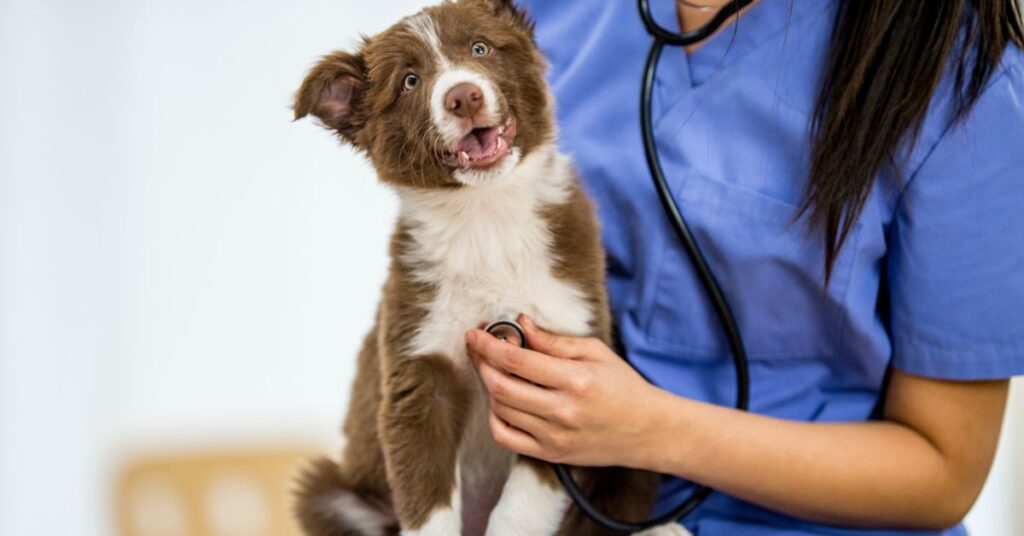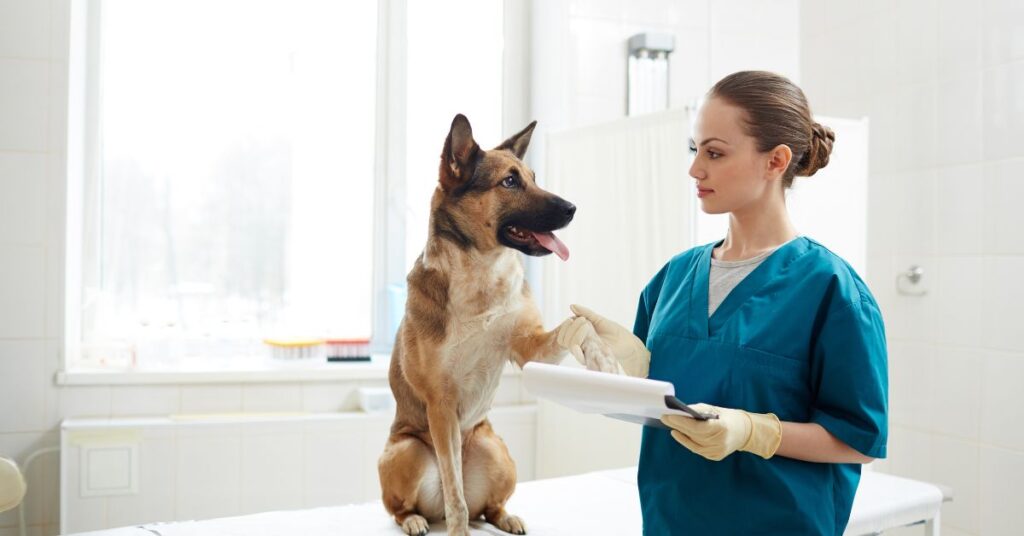When it comes to your dog’s health, what they eat plays a crucial role. With so many dog food options out there, from kibble to raw diets, it can be hard to separate fact from fiction. Let’s explore what veterinarians recommend for a balanced diet, debunk some common myths, and offer tips on choosing the best food for your furry friend.
Fact or Fiction? Debunking Common Dog Food Myths
Myth #1: Grain-Free is Always Better
Grain-free diets have gained popularity, with many dog owners believing that grains are harmful. However, veterinarians are increasingly cautioning against grain-free diets, especially because of links to certain heart conditions in dogs. Grains are a valuable source of carbohydrates and nutrients, and most dogs can digest them without issue. Unless your dog has a specific grain allergy, there’s no need to avoid grains.

Myth #2: Raw Diets Are the Most Natural and Healthy
While the idea of feeding your dog raw meat might seem closer to what their ancestors ate, raw diets come with risks. Raw food can contain harmful bacteria like Salmonella and E. coli, which can be dangerous for both your dog and your household. Veterinarians generally recommend cooked or commercially prepared foods to ensure a balanced diet that’s also safe.
Myth #3: All Kibble is Created Equal
Not all kibble is of the same quality. Some brands use fillers and low-quality ingredients that provide little nutritional value. Veterinarians recommend looking for kibble that lists meat as the first ingredient and contains no artificial preservatives, colors, or flavors. High-quality kibble can offer a balanced diet when chosen carefully.
What Veterinarians Recommend for a Balanced Diet
Veterinarians emphasize the importance of feeding your dog a balanced diet that includes the right mix of protein, fats, carbohydrates, vitamins, and minerals. Here’s what to look for:
- Protein: Essential for muscle development and overall health. Look for foods where real meat, like chicken, beef, or fish, is the first ingredient.
- Fats: Provide energy and support cell function. Ensure the food has healthy fats, such as those from fish oil or chicken fat.
- Carbohydrates: Offer energy and fiber. Whole grains, vegetables, and fruits are good sources of carbs.
- Vitamins and Minerals: Necessary for overall health and immune function. A good dog food will contain a blend of vitamins (like A, D, and E) and minerals (such as calcium and phosphorus).
Tips for Choosing the Best Dog Food
When choosing dog food, it’s important to consider your dog’s specific needs. Here are some tips:
- Age-Appropriate Food: Puppies, adults, and senior dogs have different nutritional requirements. Make sure to choose food that’s formulated for your dog’s life stage.
- Breed-Specific Needs: Some breeds have unique dietary needs. For example, large breeds may benefit from food that supports joint health, while small breeds might need smaller kibble for easier chewing.
- Health Conditions: If your dog has specific health issues, such as allergies or weight problems, consult your veterinarian for a diet tailored to their needs.
- Check the Label: Look for the Association of American Feed Control Officials (AAFCO) statement on the packaging, which indicates the food meets established nutritional standards.
Consulting with Your Veterinarian
Ultimately, your veterinarian is the best resource for determining what diet is right for your dog. They can provide personalized recommendations based on your dog’s breed, age, health status, and lifestyle. Regular check-ups also allow for adjustments to your dog’s diet as needed.
Conclusion
Feeding your dog the right food is essential to their overall health and well-being. By understanding the facts and following veterinarian recommendations, you can ensure your furry friend gets the nutrition they need to thrive. Whether you choose kibble, wet food, or a combination, prioritize high-quality ingredients and a balanced diet.
If you’re ever in doubt, don’t hesitate to consult your vet—they’re there to help you make the best choice for your pet.



